Disorder and decay
Trump's attempted document theft ... Missing pages from confidential files ... Trouble for former president's lawyers ... Patsy judge's flawed reasons ... State judges up for election in November ... Republicans working on the judicial stack ... From Our Man in Washington, Roger Fitch
"Plaintiff has no property interest in any Presidential records (including classified records) seized from the Premises. The Presidential Records Act provides ... that '[t]he United States shall reserve and retain complete ownership, possession, and control of Presidential records' ... Plaintiff [does not] offer any ... colourable argument that he has a property interest in any Presidential records seized ... Plaintiff's Motion, in fact, asserts that '[t]he documents seized at Mar-a-Lago ... were created during his term as President' ... precisely the types of documents that likely constitute Presidential records.
Because these records do not belong to Plaintiff, [he has] no right to have them returned. And because Plaintiff has no such right, this Court should not appoint a special master to review Presidential records for the purpose of entertaining potential claims of executive privilege ... the former President cites no case ... in which executive privilege has been successfully invoked to prohibit the sharing of documents within the Executive Branch." - US response, Trump v US
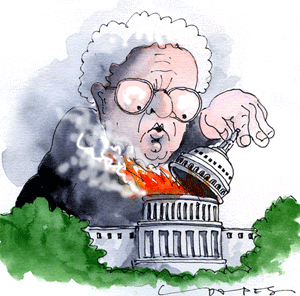 Even if Donald Trump escapes punishment for e.g, insurrection, he must be guilty of something: consider the example of the American gangster Al Capone, undone by Internal Revenue. While tax evasion is likely among Trump's countless crimes, his downfall may be the National Archives (NARA), wielding the Presidential Records Act.
Even if Donald Trump escapes punishment for e.g, insurrection, he must be guilty of something: consider the example of the American gangster Al Capone, undone by Internal Revenue. While tax evasion is likely among Trump's countless crimes, his downfall may be the National Archives (NARA), wielding the Presidential Records Act.
After Trump left the White House, NARA discovered that important official papers belonging to the Archives were missing, and asked for their return. When the requested documents were not provided, but lied about ("only news clippings"), moved about and hidden, the Justice Department was called in.
After months of Trump obstruction, DOJ obtained a search warrant for Trump's hotel-home, Mar-a-Lago, and retrieved a sizable tranche of government papers, many secret and/or highly classified, that the ex-president had secreted and retained.
A damning affidavit supported the government's search, which yielded "sensitive" documents afterwards compared by Trump lawyers to "overdue library books".
American media initially stressed the "unprecedented" search by the FBI of (gasp) a former president's home, assuming some deference was due. That changed when 11,000 government records were found in Trump's possession and 90 empty folders, half of which were marked confidential.
What's actually unprecedented is the wholesale theft of government documents by an outgoing president, 320 of them classified. Sensitive government documents may have disappeared.
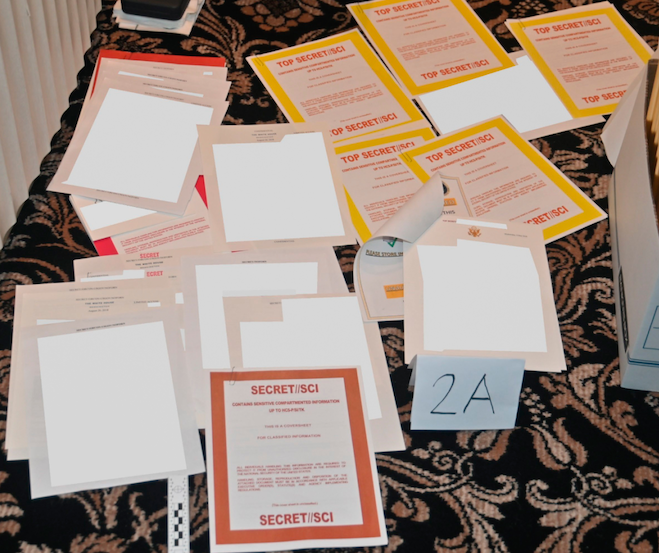 Top secret documents found in Trump's Mar-a-Lago office (pic DOJ)
Top secret documents found in Trump's Mar-a-Lago office (pic DOJ)
Missing items may have been destroyed, shared, or hidden somewhere new.
No one knows Trump's motives in appropriating the documents found. Was it espionage, blackmail and intimidation, leverage, greed (marketable documents), obstruction of justice (quite likely) or simple hoarding?
Whatever it was, Dana Milbank agrees with the former president: he should be treated just like Hillary.
≈ ≈ ≈
If only Trump could afford proper lawyers, like the ones from Jones-Day, the large and reputable law firm that staffed his administration. They're unavailable now.
Nor does he enjoy the services of his intensely-political and tractable attorney general, William Barr, whose secret 2019 memo absolving Trump of eleven obstructions of justice in the Mueller Report has just been published.
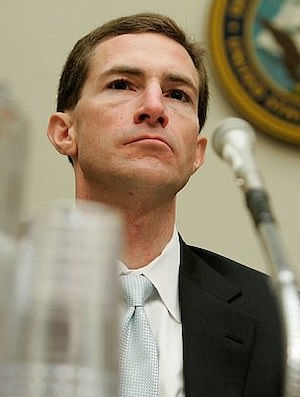 Philbin: subpoenaed for January 6 probeTrump has lost White House Counsel Pat Cipillone and his deputy, Patrick Philbin, defence counsel in the second senate impeachment. Philbin and Cipillone are busy talking to the January 6 Committee; luckily, they haven't faced the sort of debriefing Philbin approved for George Bush's "terrorist suspects".
Philbin: subpoenaed for January 6 probeTrump has lost White House Counsel Pat Cipillone and his deputy, Patrick Philbin, defence counsel in the second senate impeachment. Philbin and Cipillone are busy talking to the January 6 Committee; luckily, they haven't faced the sort of debriefing Philbin approved for George Bush's "terrorist suspects".
The January 6 Committee also cost Trump the services of the ex-law professor John Eastman, who's been forced to hand over documents on which legal privilege was claimed, but contained evidence of likely crimes.
Eastman (the subject of multiple ethics complaints) kept meticulous notes; revelations in court filings have been damning for Trump.
Mr Trump can still look to a tribe of MAGA lawyers to carry out dubious initiatives, but a group called the 65 Project is pursuing disciplinary actions against those lawyers who have acted unethically.
The organisation identified 110 lawyers in 26 states who "agreed to participate" in plots to overthrow the 2020 election, some involving crimes, e.g, concocting sham slates of presidential electors (more here). Some lawyers even served as fake electors.
For the Mar-a-Lago search response, Trump relied on a crew that included TV host Christina Bobb, parking garage lawyer Alina Habba and other D-list lawyers, plus two experienced lawyers, Evan Corcoran and James Trusty.
Trump's lawyers need to know which documents incriminate Trump, so they can assert 4th Amendment claims under Rule 41.
After forum-shopping Florida for a sympathetic judge, they found the Trump-appointed Aileen Cannon; she obligingly ordered an unheard-of review of the documents (property of the executive branch under the PRA) by a special master.
Trump's initial motion in Cannon's court partly backfired in that Corcoran and Bobb came under DOJ scrutiny for misleading statements, but following a hearing, Judge Cannon granted the motion for a special master to review, for executive privilege, documents DOJ had already perused for legal privilege.
This ruling, described as "incredibly flawed", put an ex-president with unclean hands in a privileged position, and was widely criticised (also here).
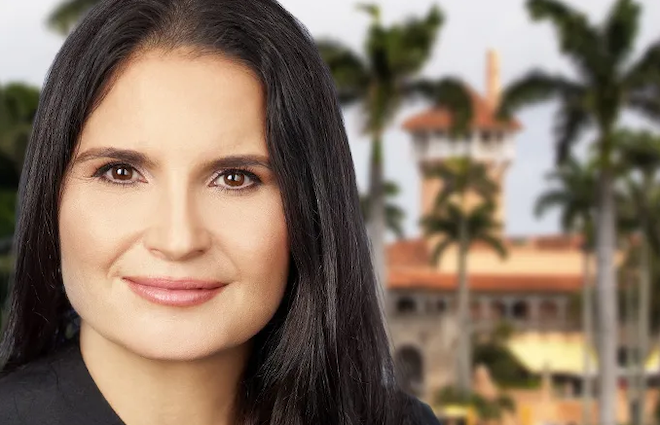 Florida "Trump judge", Aileen Cannon
Florida "Trump judge", Aileen Cannon
DoJ appealed for a stay; Trump's muddled response called the matter a "document storage dispute", and suggested classified documents became personal with Trump's annotations.
Cannon appointed the special master, and kept the injunction against DoJ using any documents (including the 100 classified ones) for investigative purposes. DoJ appealed that ruling here.
The ex-president meanwhile continues to obstruct justice, promising to pardon everyone who participated in the January 6 insurrection (the Constitution contemplates pardons for insurgents, to quell unrest, not to "support insurrectionists and reward violence").
If Trump is indicted, what extreme response might result? The New Republic worried:
"If an indictment is a fait accompli, then we're in for something we've never seen in this country ... a former head of state potentially leading a civil war and/or committing open treason by using state secrets for leverage."
≈ ≈ ≈
Judge Cannon epitomises the partisan disorder Donald Trump brought to the federal judiciary. The Trumping of federal courts has been a disaster, but at least federal judges aren't elected.
In many states, judges are elected (and unelected), and partisan lawyers are groomed for judicial elections where wildly-expensive advertising is funded by special interests, sometimes potential litigants.
32 states with elected supreme court judges will be voting on them this November. Many such states are ruled by Republicans striving to ideologically-stack their highest courts.
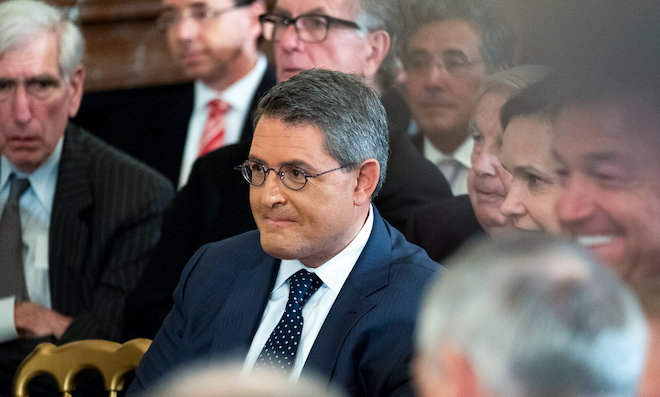 Leonard Leo: Republican court stacker
Leonard Leo: Republican court stacker
The man behind these efforts is Federalist Society functionary Leonard Leo, who, more than anyone else, is responsible for pushing Republican party loyalists and ideologues into every level of the federal judiciary.
Leo's target is now state courts, and his "Freedom Trust" is funded by the largest political contribution in American history, $1.6 billion in dark money from an until-recently undisclosed donor, Barre Seid (more in Rolling Stone).
Is this a great country, or what?
No comments:
Post a Comment